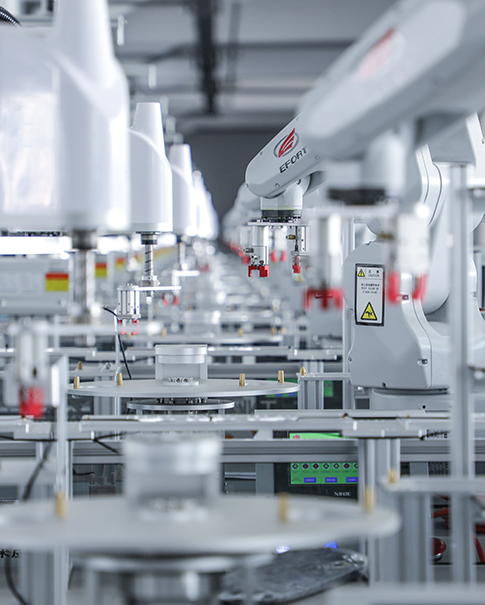DCS stands for Distributed Control System, and in the domestic automation industry in China, it is also referred to as a Distributed Control System. It is a multi-level computer system connected by a communication network, consisting of process control levels and process monitoring levels. DCS integrates technologies such as Computer, Communication, CRT (Cathode Ray Tube for display), and Control. Its basic philosophy is:
The DCS system mainly consists of field control stations (I/O stations), data communication systems, human-machine interface units (operator stations OPS, engineer stations ENS), cabinets, power supplies, etc. The system has an open architecture and can provide multi-layer open data interfaces.
The hardware system is highly reliable in harsh industrial environments, easy to maintain, and features advanced technology. The underlying localized software platform has powerful processing capabilities and provides convenient configuration of complex control systems, as well as support for users to independently develop specialized advanced control algorithms; it is easy to configure and easy to use. The system supports multiple fieldbus standards to accommodate future expansion needs.
Advantages:
Comprehensive control functions, capable of achieving complex control and optimal control.
Facilitates the integration and analysis of information.
Issues:
Concentration of risks.
Performance issues: Overload of single machine.
Development cycle.
Solutions:
Select computers with high reliability.
Introduce redundancy and add backup devices.
In 1975, the American company Honeywell successfully launched the world’s first distributed control system. Currently, more than 60 companies are involved in the production and development of various types of distributed control systems. Systems such as TDC-3000, PKS, NETwork-90, and CENTUM are widely used in our country.Represented by Honeywell, Emerson, Foxboro, Yokogawa, and ABB, it can be said that a new generation of DCS has emerged, marked by Honeywell’s newly introduced Experion PKS (Process Knowledge System), Emerson’s PlantWeb (Emerson Process Management), Foxboro’s Invensys/Foxboro I/A V8.x, Yokogawa’s R3 (PRM - Plant Resource Management System), and ABB’s Industrial IT system.
Reliability Measures of DCS Systems
In DCS (Distributed Control System) systems, numerous technical measures are implemented to enhance reliability. These technical measures are based on the following four fundamental principles:
Making the system itself less prone to failures, which is known as failure prevention.
Minimizing the impact of failures when they occur, known as failure security and failure mitigation.
Allowing the system to continue operating when a failure occurs, which is known as fault tolerance.
Enabling maintenance to be conducted without stopping the system, known as online maintenance.
Email us
Reply within one working dayVisit us
32D Guomao Building, No.388, Hubin South Road, Siming DistrictDisclaimer : Salesplc sells new and surplus products and develops channels for purchasing such products. This website has not been approved or recognized by any of the listed manufacturers or trademarks. Salesplc is not an authorized distributor, dealer, or representative of the products displayed on this website. All product names, trademarks, brands, and logos used on this website are the property of their respective owners. The description, explanation, or sale of products with these names, trademarks, brands, and logos is for identification purposes only and is not intended to indicate any association with or authorization from any rights holder.
Copyright @2024 SalesPlc Limited. Sitemap
/ Blog
/ XML
/ Terms And Conditions
/ Privacy Policy
 Network Supported
Network Supported
